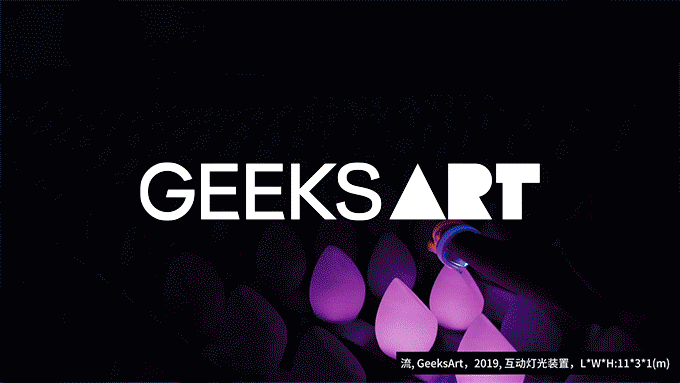Oyster talks 四度蚝餐饮品牌 2002 年于中国香港创立,并在 2013年来到北京,是北京第一家以进口高品质生蚝为特色的西餐厅,也是北京能够吃到品种最丰富、品质水准最高的生蚝专门店。
Oyster talks was founded in Hong Kong, China in 2002 and came to Beijing, 2013. It is the first Western restaurant which provides imported high-quality oysters in Beijing. Not only the widest variety of oysters, but also the highest quality oyster restaurant.
Oyster talks 四度蚝餐厅委托 odd 为其设计一家新店,店铺位于北京盈科中心,是餐厅北京店的新址。之前餐厅整体采用欧式古典风格,此次搬迁后升级店面以深色调为主,使用现代风格希望能给顾客带来与过去不一样的体验,这也是 Oyster talks 四度蚝餐厅对自身认知的更新。
Oyster talks entrusted okamoto deguchi design to create a restaurant as the new location of oyster talks in Beijing. Previously, oyster talks’s interior adopted European classical style. After relocation, the upgraded store mainly focuses on dark tune, and the utilization of modern style brings customers a different experience from the past. This is also the renewal of oyster talks’s own cognition.
▲外立面
餐厅外立面由斜面遮雨棚与玻璃门两大部分组成。斜面遮雨棚与传统遮雨棚不同,简单的几何形状起到了遮雨的作用,也让外立面整体形体更为美观。透过玻璃门,斜面遮雨棚与室内深色墙体融为一体,打破了玻璃门带来的隔阂感,站在餐厅外也能感受到内部深蓝色墙体带 来的视觉冲击。铜色的挑出造型与深蓝色的室内空间带来的强烈对比 也让整个入口显得格外引人注目。
The facade of the restaurant consists of two parts, the sloping awning and the glass door. The slanted awning is different from the traditional; the simple geometric shape plays the role of rain shelter and makes the whole shape of the facade more attractive. Through the transparent door, the slanted awning is integrated with the interior dark-color wall inside, breaking the estrangement brought by the glass door. Standing outside the restaurant, you can also feel the visual impact brought by the interior atmosphere. The strong contrast between the copper-colored pick out shape and the dark interior space also makes the whole entrance particularly eye-catching.
▲生蚝吧台
走进餐厅内部,象征着 Oyster talks 四度蚝品牌文化的生蚝吧台伫立于入口处。吧台上展示着丰富多样的海鲜产品,8盏射灯将吧台上新鲜生蚝的光泽表现得十分鲜美诱人。吧台采用了环岛式设计,使得吧台区域成为客人初入餐厅后的必经之处。这样设计能确保客人高效 地了解餐厅招牌菜品种类,更能一目了然地知晓菜品的新鲜程度。吧台立面由纯手工打造的铜板面制成,铜板上的锤纹肌理呼应贝壳表面自然纹路。吧台台面使用不锈钢和石材,两种材料的结合既能跟铜板底座产生鲜明的对比,低调奢华的气质也不会夺走属于海鲜产品的亮 点。
Inside the restaurant, the oyster bar stands at the entrance. A variety of seafood products are displayed on the bar. 8 spotlights show the gloss of fresh oysters on the bar, makes it very delicious and attractive. The round island design of the bar makes the bar area become a must-see spot for guests after entering the restaurant for the first time. This idea ensures that guests can effectively understand the specialty of restaurant and can see at a glance the freshness of the dishes. The facade of the bar is made of hand-crafted copper with the hammer texture on the copper plate echoes the natural grain on the surface of the shell. The combination of stainless steel and stone on the bar top creates a stark contrast with the copper base, and the understated luxury does not take away from the highlights of the seafood products.
▲生蚝吧台
吧台后面鱼尾般的墙面造型仿佛深海里的一盏明灯,木纹理质感带给吧台区域温馨且安静的氛围。昏暗的深蓝色空间与木色墙面的反差将 整个吧台的氛围衬托得更加耀眼。
The fishtail-like wall behind the bar looks like a bright light in the deep sea. The wood texture brings a warm and quiet atmosphere to the bar. The contrast between the dark space and the wood-colored wall sets off the atmosphere of the whole bar more dazzling.
▲用餐区域
餐厅深蓝色的墙面让人仿佛置身于深海之中般幽静;暖白色灯光照耀 在白色的桌布上,让每一桌美食变得璀璨夺目;墙壁上昏暗的壁灯和 暗色镜面给幽静的空间氛围带来些许温馨。
The dark blue wall of the restaurant is as quiet as being in the deep sea; the warm white light shines on the white tablecloth, making each table of delicious food dazzling. The dim wall lamps and dark mirrors on the wall make the quiet space atmosphere warmer
▲生蚝吧台是去往用餐区域的必经之路
透过用餐区深处的茶色玻璃,低温酒柜中的各式美酒展现在眼前,给这幽暗温馨的空间里又多一份惊喜与醉意。
Through the dark glass in the dining area, all kinds of wine in the low-temperature wine cabinet are displayed in front of guests, giving the space another surprise and intoxication.
▲用餐区域的低温酒柜
幽暗的走廊墙面上展示的酒杯令人目不暇接,独立展柜成为了走廊处目光的焦点。天花反射出走廊倒影,给幽暗的走廊增添了一笔深邃。
The wine glasses displayed on the dark corridor wall, and the freestanding wine cabinet becomes the focal point of attention in the corridor. The ceiling reflects the reflection of the corridor, adding depth to the dark corridor.
▲包间内部
包间的氛围与用餐区域不同,设计师采用了明亮轻快的设计,凸显了包间区域在整体设计中的独特性。深蓝色与白色的融合展现了深海的幽静和白色的纯洁,整体空间庄重而高雅。
The ambiance of the private room is distinct from the dining area. The designer adopts a bright and light way to highlight the uniqueness of the private room area in the overall design. The fusion of dark blue and white shows the solitude of the deep sea and the purity of white, and the overall space is solemn but elegant.
▲包间内部望向吧台
包间内部有一面与房间等高的酒柜,琳琅满目的美酒也为包间带来一丝欢乐和优雅。墙面的波浪板与窗帘配合着灯带的光,给整个空间带来了丰富的层次感。墙上艺术品挂画陈设均经过业主与设计师悉心甄 选,呈现出精巧别致的艺术气息。
There is a wine cabinet equal to the height of the room inside private room, and the wide array of wines also brings a touch of joy and elegance to the private room. The waved panel on the wall and the curtain with the light from the lamp bring a rich sense of layers to the whole space. The artworks on the wall are carefully selected by the client and designer, presenting a delicate and chic artistic atmosphere.
▲项目平面图
项目信息——
项目名称:Oyster talks 四度蚝
建筑事务所:odd设计事务所
项目地点:北京三里屯 盈科中心 1F
完成年份:2021年1月
建筑面积:260平方米
建筑主要材料:
墙面:深蓝色乳胶漆、黑色玻璃、木饰面。
家具:深蓝色烤漆、镀铜不锈钢、铜板、白色大理石
机电顾问:北京东洲际技术咨询有限公司(石川星明、竹林克宣、山崎隆司)
摄影师:锐景摄影——广松美佐江/宋昱明
Project Information——
Project title:oyster talks
Architecture Firm:okamoto deguchi design
Architect:Okamoto Keizo \ Deguchi Tsutomu \Cao Bo\ Wei Lei
Address:Beijing
Completion:2021
Area:260 ㎡
Main materials
Wall:dark blue emulsion paint latex\black glass\ wood finishes
Furniture:dark blue baking paint\plating brass stainless steel\copper plate\white marble
Floor:Wood Blocks\black terrazzo
Facility Advise:Beijing Dongzhouji Technical Consultation
Photo:Ruijing Photo——Misae Hiromatsu\Song Yuming





















